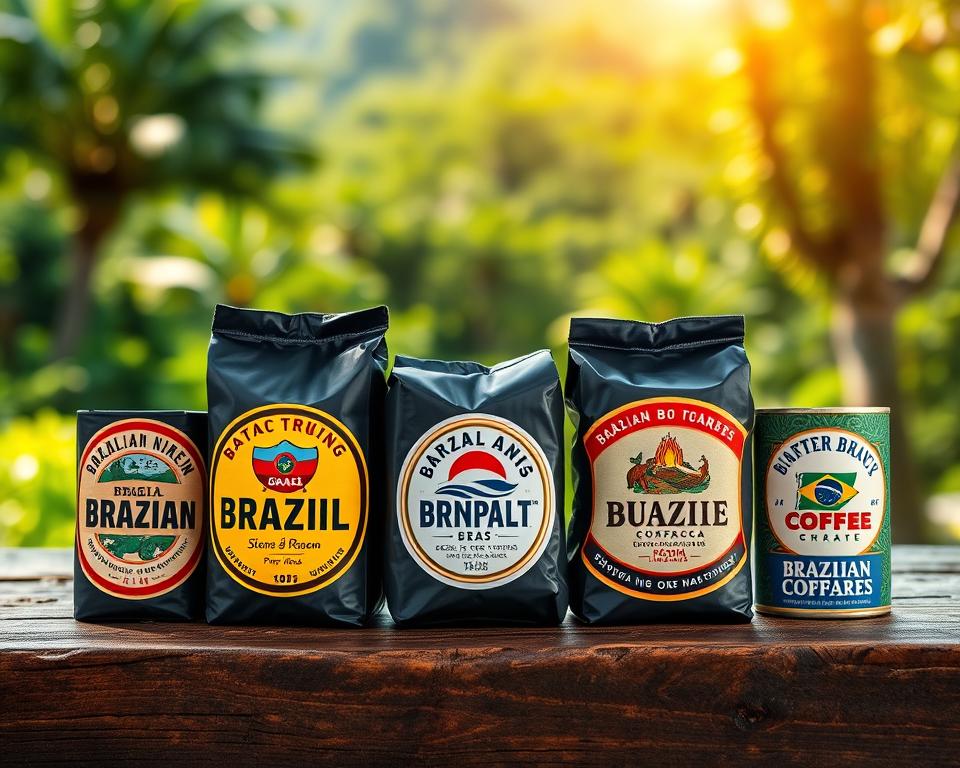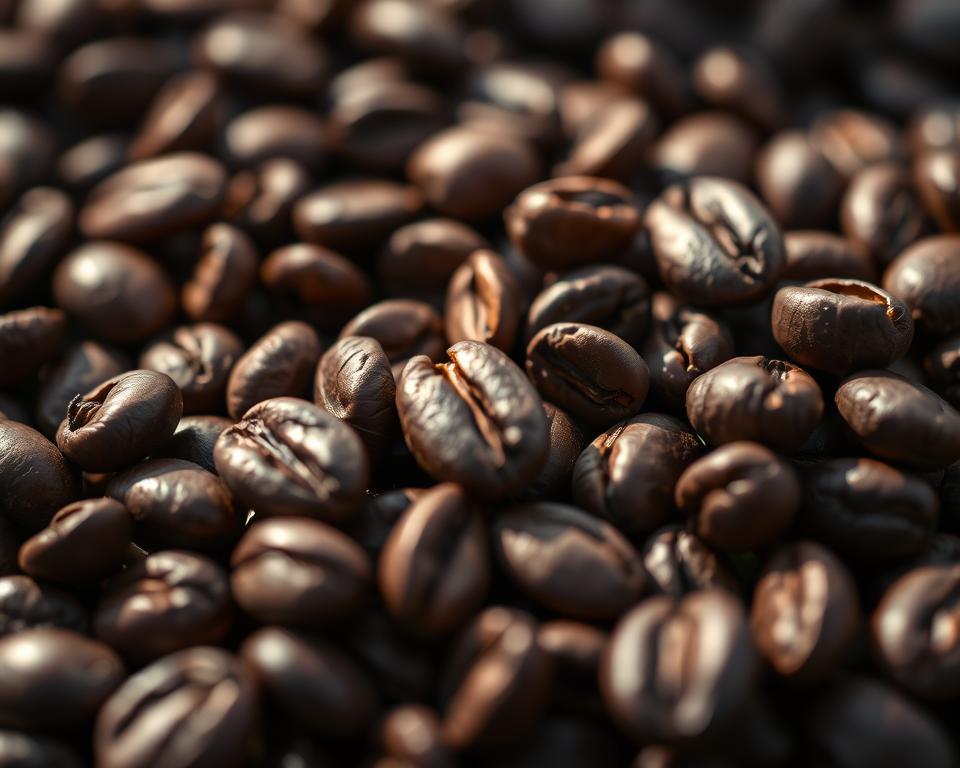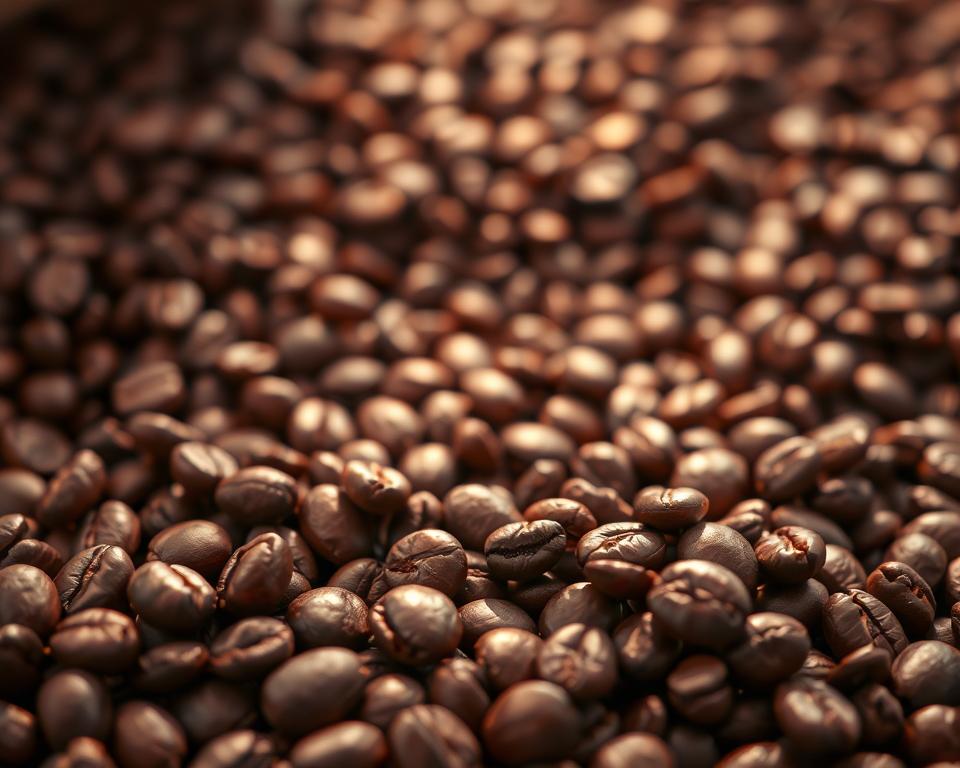Brazilian coffee is celebrated for its deep flavor and enticing aroma. It comes from various regions, each offering unique coffee types. Specialty coffees, scoring 80 points or higher, are a testament to this diversity. When searching for the best, consider the distinct flavors of each region, like Yellow Bourbon’s sweetness. Opt for organic Brazilian coffee for a genuine taste, grown sustainably without artificial additives.
Brazil, with over 150 years of coffee production, leads the world in coffee export. It boasts a wide array of coffee varieties, including Bourbon, Catuai, and Mundo Novo. Whether you prefer a balanced taste or a bold one, Brazilian coffee caters to all. Its production methods, from natural to pulped natural, create a variety of flavors and aromas.
For coffee aficionados, Brazilian coffee is a must-try. It offers a smooth, low-acid taste with chocolate hints. The rise of fair trade and rainforest alliance certifications ensures that farmers are fairly compensated and work in humane conditions. Whether you enjoy café com leite, café pingado, or mazagran, Brazilian coffee culture is rich and varied.
Key Takeaways
- Brazilian coffee is known for its rich flavor and aroma, with various regions producing distinct types of coffee.
- Specialty coffees, such as Geisha coffee and Yellow Bourbon coffee, offer unique flavor profiles and aromas.
- Organic Brazilian coffee is a great option for those looking for a sustainable and authentic coffee experience.
- Brazil has been the world’s largest producer and exporter of coffee for over 150 years, offering a wide range of coffee varieties.
- Brazilian coffee culture emphasizes hospitality, with cafézinho being a staple in homes and workplaces.
- Brazilian coffee is often used in creative recipes, such as coffee-based cocktails and desserts like tiramisu and affogato.
Introduction to Brazilian Coffee
Brazilian coffee has been a cornerstone of the country’s culture and economy for centuries. As the world’s largest coffee producer, Brazil has led the global market for over 150 years. Its coffee production significantly boosts the economy and is deeply woven into the social fabric. To buy brazilian coffee online, one can explore various brazilian coffee brands that offer high-quality coffee beans.
Coffee is a vital part of Brazilian daily life, with 98% of households consuming it. The country’s coffee culture is rich and diverse, featuring traditional drinks like cafézinho and café com leite. These drinks are essential in hospitality practices. Brazilian coffee roasters are renowned for their expertise in producing high-quality coffee beans, sought after by coffee enthusiasts worldwide.
Overview of Coffee Culture in Brazil
The coffee culture in Brazil is deeply rooted in its history and traditions. From the harvest season, which runs from April to September, to the various coffee varieties grown in different regions, Brazil’s coffee culture is unique and fascinating. Popular coffee varieties grown in Brazil include Bourbon, Catuai, and Mundo Novo, each with its distinct flavor profile.
The Importance of Coffee in the Brazilian Economy
Coffee is a significant contributor to Brazil’s economy, with the country producing 30% of the world’s coffee supply. The coffee industry provides employment for millions, from farmers to coffee roasters. Brazilian coffee brands are gaining popularity globally, with many coffee lovers seeking to buy brazilian coffee online. The country’s coffee production is not only a major source of revenue but also a symbol of its rich cultural heritage.
- Brazil produces 50-60 million bags of coffee each year, with 80% being arabica.
- Approximately 20 million bags remain in Brazil for domestic consumption.
- Brazil became the leading coffee consumer in the mid-2010s.
Brazilian coffee is known for its balanced and approachable flavors, with most beans leaning towards a mild, nutty taste with hints of chocolate. With its rich coffee culture and significant economic impact, Brazil is a leader in the global coffee industry, and its coffee is enjoyed by people all over the world.
Key Characteristics of Brazilian Coffee
Brazilian coffee is celebrated for its distinct flavors and aromas. These are influenced by the country’s varied growing regions and coffee processing techniques. The taste of premium brazilian coffee is often mild and smooth, with hints of nuts and chocolate.
The production of specialty brazilian coffee is a key part of Brazil’s coffee industry. Many farms concentrate on producing high-quality beans. The common varieties grown in Brazil include Bourbon, Catuai, and Mundo Novo, each with its own unique taste and characteristics.
Flavor Profiles and Aromas
The taste of Brazilian coffee is shaped by several factors. Altitude, soil type, and coffee processing methods all play a role. For instance, natural processing makes beans sweeter and fuller-bodied. The pulped natural process, on the other hand, creates complex flavors.
Common Varieties Grown in Brazil
Some of the most common varieties grown in Brazil include:
- Bourbon: known for its sweet and balanced flavor
- Catuai: recognized for its balanced and smooth flavor
- Mundo Novo: a hybrid variety with a mild and smooth flavor
These varieties contribute to the reputation of authentic brazilian coffee as a high-quality and flavorful coffee. With its rich flavors and diverse growing regions, Brazilian coffee is a favorite among coffee enthusiasts globally.
Regions Famous for Coffee Production
Brazil is celebrated for its rich coffee culture, with several regions playing a key role in its status as a leading coffee producer. The southeastern states of Minas Gerais, São Paulo, and Bahia stand out for their coffee cultivation. These areas are pivotal in the production of fresh brazilian coffee.
The unique climates and soil conditions in these regions contribute to the distinct flavor profiles of brazilian coffee. The best brazilian coffee beans often come from these regions, celebrated for their superior quality.
Minas Gerais: The Heart of Brazilian Coffee
Minas Gerais is the largest coffee-producing state in Brazil, accounting for about 50% of the country’s coffee output. Its mild climate and rich soil create an ideal environment for coffee cultivation.
São Paulo: A Rising Star in Coffee
São Paulo is another significant coffee-producing state in Brazil, with a moderate climate and fertile soil. It is known for producing a variety of coffee types, including Arabica and Robusta.
Bahia: Unique Terroirs and Flavors
Bahia, located in northeastern Brazil, is famous for its unique terroirs and flavors. The region’s dry and semi-arid climate gives coffee a distinct taste, making it a favorite among coffee aficionados.
- Minas Gerais: mild climate, rich soil, and high altitude
- São Paulo: moderate climate, fertile soil, and diverse coffee varieties
- Bahia: dry and semi-arid climate, unique terroirs, and distinct flavor profiles
These regions are crucial not just for brazilian coffee production but also for Brazil’s reputation as a major coffee producer. They offer a variety of fresh brazilian coffee and best brazilian coffee beans to coffee enthusiasts globally.
The Coffee Growing Process in Brazil
Coffee production in Brazil is a detailed process, from planting to harvesting. It focuses on creating top-notch organic brazilian coffee. The coffee cycle starts with flowering, happening between September and November. Harvesting times vary from May to September, based on the region and coffee type.
The harvesting method depends on the land’s topography and quality focus. Mechanized harvesting uses sensors for ripe beans, while manual harvesting is better in mountains for quality. Brazilian coffee roasters often choose manual harvesting for its distinct flavors and aromas.
After harvesting, processing methods like natural, hulled, semi-washed, and washed impact coffee quality. Most Arabica coffees in Brazil use natural processing. It’s vital to store coffee properly to maintain its quality over time.
- Temperature and rainfall, which shape grain characteristics and taste
- Plant nutrition, crucial for coffee quality
- Land topography, affecting harvesting and processing methods
Grasping these factors is key for producing premium organic brazilian coffee. It also helps brazilian coffee roasters craft unique and delicious coffee blends.
How to Brew the Perfect Cup of Brazilian Coffee
Brazilian coffee is celebrated for its deep flavor and enticing aroma. To brew the perfect cup, you need to know a few tricks. Start by picking a top-notch Brazilian coffee brand, like Cafe Pilao or Volcanica Brazil Peaberry Coffee. These can be found online when you decide to buy Brazilian coffee online. Think about the flavor you like, as Brazilian coffee beans vary from mild to bold.
The coffee-to-water ratio is key to a great cup of Brazilian coffee. Aim for 1:15 to 1:17 coffee to water. You can tweak this ratio to match your taste. Also, use filtered water, as coffee is mostly water, and impurities can ruin the taste.
Recommended Brewing Techniques
Several brewing methods can highlight Brazilian coffee’s unique flavors. Pour-over and French press are favorites for a clean, sweet taste. Pour-over gives you control, while French press offers a richer, syrupy texture. When buying Brazilian coffee online, look for brands with various roast levels to match your brewing style.
Tips for Enhancing Flavor
To boost your Brazilian coffee’s flavor, try these tips:
- Use freshly roasted and ground coffee beans
- Experiment with different roast levels to find your preferred flavor profile
- Adjust the coffee-to-water ratio to suit your taste preferences
- Use filtered water to prevent impurities from affecting the flavor
By using these tips and trying different brewing methods, you can make the perfect Brazilian coffee. Whether you like it mild or bold, Brazilian coffee will meet your coffee desires.
Popular Brazilian Coffee Brands to Try
Brazilian coffee is celebrated for its deep flavors, with many brands offering premium brazilian coffee. These brands highlight the country’s coffee-making prowess. For those eager to explore specialty brazilian coffee, several brands stand out for their quality and distinct offerings.
Illy, Café do Brasil, and Daterra are among the most sought-after Brazilian coffee brands. They are recognized for their dedication to sustainability and quality. These brands cater to various preferences, from medium roasts to darker roasts, ensuring there’s something for everyone.
Notable Brands and Their Offerings
- Illy: Known for their high-quality Arabica beans and commitment to sustainability
- Café do Brasil: Offers a range of specialty brazilian coffee blends, including single-origin and organic options
- Daterra: Focuses on sustainable coffee production and offers a range of flavors and blends
Exploring premium brazilian coffee means considering the processing methods and roast levels. Brands like Daterra provide a spectrum of roast levels, from light to dark. Others, such as Illy, concentrate on medium to dark roasts. By examining these options, you can discover the ideal specialty brazilian coffee that matches your taste.

Health Benefits of Brazilian Coffee
Brazilian coffee is celebrated for its rich flavor and health benefits. Drinking authentic brazilian coffee can significantly improve our well-being. An 8-ounce cup is packed with vitamins B2, B5, and B1, along with minerals like manganese and potassium.
The health perks of fresh brazilian coffee include its high antioxidant levels. These antioxidants protect cells and lower the risk of chronic diseases. Coffee’s caffeine also boosts metabolism and exercise performance. It may even reduce the risk of Alzheimer’s and Parkinson’s.
- Rich in antioxidants and essential nutrients
- May lower risk of chronic diseases like Alzheimer’s and Parkinson’s
- Can boost metabolism and exercise performance
- May reduce risk of type 2 diabetes and certain types of cancer
Adding authentic brazilian coffee to your daily routine can greatly benefit your health. Its rich taste and health advantages make Brazilian coffee a favorite globally.
Pairing Brazilian Coffee with Food
Brazilian coffee is celebrated for its smooth and sweet taste, making it perfect for a wide range of foods. Pairing brazilian coffee with various dishes opens up a world of possibilities. Whether it’s sweet or savory, brazilian coffee can elevate any meal’s flavors.
Popular pairings include cheese, chocolate, and pastries. Cheese’s creaminess pairs well with brazilian coffee‘s rich taste. Chocolate’s sweetness complements the coffee’s natural sweetness. Pastries, like croissants or muffins, offer a delightful contrast to the coffee’s smoothness.

In Brazil, pairing brazilian coffee with local foods is common. Pão de queijo, a cheesy bread roll, and brigadeiro, a chocolate truffle, are favorites. These pairings highlight the contrast between the bread’s saltiness and the coffee’s sweetness, or the chocolate’s richness.
For those eager to explore new pairings, here are some ideas:
- Pair best brazilian coffee beans with tiramisu for a sweet treat
- Combine brazilian coffee with smoked salmon for a savory breakfast option
- Enjoy brazilian coffee with fresh tropical fruits, such as papaya or mango, for a refreshing snack
Experimenting with different pairings is key to enjoying brazilian coffee with food. Its smooth and sweet flavor makes it a versatile addition to any meal or snack.
Conclusion: Why Brazilian Coffee Deserves a Place in Your Cupboard
Brazilian coffee stands out in the world of coffee, thanks to its rich history and diverse flavors. It has a significant economic impact, making Brazil a top producer and exporter. From Minas Gerais’s lush plantations to São Paulo’s innovative farms, Brazilian coffee offers a unique experience for coffee lovers.
Whether you enjoy the smooth, chocolatey notes of natural beans or the bright, floral scents of washed Arabica, Brazilian coffee has it all. The wide range of Brazilian coffee roasters and premium brands opens up a world of flavors. Buying Brazilian coffee online lets you discover the distinct qualities that make it special.
Brazil’s role as the world’s largest coffee producer is clear. Its dedication to sustainability, innovation, and quality has made it a leader in specialty coffee. Adding Brazilian coffee to your daily routine supports coffee farmers and offers a remarkable taste experience.
FAQ
What makes Brazilian coffee unique?
What are the most common coffee varieties grown in Brazil?
Which regions in Brazil are famous for their coffee production?
How does the coffee growing process in Brazil differ from other countries?
What are some of the health benefits of drinking Brazilian coffee?
How can I pair Brazilian coffee with food?

Paul Allen is a writer at WyNeeds, a website dedicated to the world of coffee. Passionate about aromas and flavors, he explores everything from the best brewing methods to fascinating insights about coffee beans and industry trends. His goal is to provide readers with engaging and informative content, helping both beginners and coffee enthusiasts deepen their knowledge of the world’s most beloved beverage.

